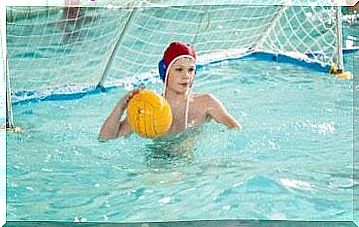The Importance Of Higher Cognitive Functions – Being Parents

Higher cognitive functions are acquired through the different learning processes that a person goes through throughout his life. Indeed, the human being learns continuously. For example, he learns through language, communication and the environment. This learning occurs from birth and ultimately continues until death.
Learning also takes place in a given social and cultural context.
Finally, knowledge is acquired through study, exercise or experience.
What does it mean to learn?
First of all, as we have said, to learn is to acquire knowledge. However, this does not only mean memorizing but also understanding and valuing this knowledge. For this, other cognitive functions are necessary. For example, the capacity for analysis and the capacity for synthesis.
Thus, these cognitive processes allow man to assimilate information regarding concepts, procedures and values. However, with this information, he builds new functional mental representations. These are then applied in different contexts and circumstances.
Learning is therefore a skill that allows humans to develop others. Indeed, it helps to recognize and acquire habits, to build and modify attitudes and behaviors.
In summary, human learning allows the development of the skills necessary for their physical and intellectual adaptation in their environment.

Higher cognitive functions
Higher cognitive functions are skills or abilities that are more complex than others that a person is expected to acquire as part of their learning process.
In his book, School of Thought, Mathew Lipman, talks about building better thinking that develops higher psychological functions. The author refers to a reasoning close to that used in the field of research. A way of thinking that is in fact constantly questioned.
Lipman therefore argues that higher-order abilities must be developed. He defines them as “ the set of internalized, organized and coordinated actions which promote adequate processing of information. They focus both on the information to be processed itself, as well as on the structures, processes and strategies that are employed to process it ”.
The higher cognitive functions are:
- Analysis. It is the ability to distinguish and separate the different parts of a whole in order to know its principles or elements.
- The synthesis. It is the capacity to arrive at the composition of a whole starting from the knowledge and the junction of its parts.
- Conceptualization. It is the ability to abstract the elements necessary and sufficient to describe a situation, phenomenon or problem.
- Information management. It is the ability to represent the building blocks of a situation in a system. That is to say in a set of rules, principles or mechanisms which are linked to each other.
- Critical thinking. It is the ability to think for yourself. It is being able to analyze and assess the consistency of your ideas, of what you read, what you hear, what you observe.

- Research. First of all, it is the ability to come up with precise hypotheses on a subject of study. It is then a matter of collecting data and information in order to verify these hypotheses. Finally, once the hypotheses have been verified, it is possible to formulate laws and theories.
- Metacognition. It is the ability to reflect on one’s own thoughts.
The importance of higher cognitive functions for higher order thinking
The development and management of the higher cognitive functions mentioned above is the basis of higher order thinking.
It is possible to develop higher order thinking in one’s old age. However, it is important that the capacities to access it are developed and strengthened from an early age. This is done in the family and school circle. However, other formal and informal learning environments can also contribute.
In summary, higher cognitive functions are important for the structuring of complex thought. This thought is able to deal with both content and mechanisms. Finally, these functions are also important because they promote rational, reflective, critical and creative thinking.









